The horrific events in Charleston, South Carolina have ignited renewed debate about the Confederate battle flag. It’s an opportunity for educators to revisit the nature of the Confederacy that the flag represented. As Ta-Nehisi Coates points out in this article, originally published by The Atlantic, the secession of Southern states was triggered by one thing: the desperate quest to preserve slavery. So often, textbooks have repeated the propaganda of Confederate apologists: “The Civil War was fought to preserve states rights.” No. That simply is not true. Where was this love for states rights when the South demanded strict enforcement of the Fugitive Slave Act, so that Northern states could not become a haven for people escaping slavery?
Coates returns us to the documents that articulated the “Cause” of the Confederacy. From the moment in December of 1860 when South Carolina became the first state to secede from the Union to the post-war terror of the Ku Klux Klan to the era of Jim Crow to today’s voter-suppression efforts, the Confederate flag has stood for white supremacy. Coates’ article—clear and hard-hitting—is a good place for educators to begin rethinking the meaning of this symbol of domination.
By Ta-Nehisi Coates
From The Atlantic Monthly,
This afternoon, in announcing her support for removing the Confederate flag from the capitol grounds, South Carolina Governor Nikki Haley asserted that killer Dylann Roof had “a sick and twisted view of the flag” which did not reflect “the people in our state who respect and in many ways revere it.” If the governor meant that very few of the flag’s supporters believe in mass murder, she is surely right. But on the question of whose view of the Confederate Flag is more twisted, she is almost certainly wrong. Roof’s belief that black life had no purpose beyond subjugation is “sick and twisted” in the exact same manner as the beliefs of those who created the Confederate flag were “sick and twisted.” The Confederate flag is directly tied to the Confederate cause, and the Confederate cause was white supremacy. This claim is not the result of revisionism. It does not require reading between the lines. It is the plain meaning of the words of those who bore the Confederate flag across history. These words must never be forgotten. Over the next few months the word “heritage” will be repeatedly invoked. It would be derelict to not examine the exact contents of that heritage.
This examination should begin in South Carolina, the site of our present and past catastrophe. South Carolina was the first state to secede, two months after the election of Abraham Lincoln. It was in South Carolina that the Civil War began, when the Confederacy fired on Fort Sumter. The state’s casus belli was neither vague nor hard to comprehend:
…A geographical line has been drawn across the Union, and all the States north of that line have united in the election of a man to the high office of President of the United States, whose opinions and purposes are hostile to slavery. He is to be entrusted with the administration of the common Government, because he has declared that that “Government cannot endure permanently half slave, half free,” and that the public mind must rest in the belief that slavery is in the course of ultimate extinction. This sectional combination for the submersion of the Constitution, has been aided in some of the States by elevating to citizenship, persons who, by the supreme law of the land, are incapable of becoming citizens; and their votes have been used to inaugurate a new policy, hostile to the South, and destructive of its beliefs and safety.
In citing slavery, South Carolina was less an outlier than a leader, setting the tone for other states, including Mississippi:
Our position is thoroughly identified with the institution of slavery—the greatest material interest of the world. Its labor supplies the product which constitutes by far the largest and most important portions of commerce of the earth. These products are peculiar to the climate verging on the tropical regions, and by an imperious law of nature, none but the black race can bear exposure to the tropical sun. These products have become necessities of the world, and a blow at slavery is a blow at commerce and civilization. That blow has been long aimed at the institution, and was at the point of reaching its consummation. There was no choice left us but submission to the mandates of abolition, or a dissolution of the Union, whose principles had been subverted to work out our ruin…
As a separate republic, Louisiana remembers too well the whisperings of European diplomacy for the abolition of slavery in the times of annexation not to be apprehensive of bolder demonstrations from the same quarter and the North in this country. The people of the slave holding States are bound together by the same necessity and determination to preserve African slavery.
Upon the principles then announced by Mr. Lincoln and his leading friends, we are bound to expect his administration to be conducted. Hence it is, that in high places, among the Republican party, the election of Mr. Lincoln is hailed, not simply as it change of Administration, but as the inauguration of new principles, and a new theory of Government, and even as the downfall of slavery. Therefore it is that the election of Mr. Lincoln cannot be regarded otherwise than a solemn declaration, on the part of a great majority of the Northern people, of hostility to the South, her property and her institutions—nothing less than an open declaration of war—for the triumph of this new theory of Government destroys the property of the South, lays waste her fields, and inaugurates all the horrors of a San Domingo servile insurrection, consigning her citizens to assassinations, and. her wives and daughters to pollution and violation, to gratify the lust of half-civilized Africans.
…in this free government all white men are and of right ought to be entitled to equal civil and political rights; that the servitude of the African race, as existing in these States, is mutually beneficial to both bond and free, and is abundantly authorized and justified by the experience of mankind, and the revealed will of the Almighty Creator, as recognized by all Christian nations; while the destruction of the existing relations between the two races, as advocated by our sectional enemies, would bring inevitable calamities upon both and desolation upon the fifteen slave-holding states….
None of this was new. In 1858, the eventual president of the Confederacy Jefferson Davis threatened secession should a Republican be elected to the presidency:
I say to you here as I have said to the Democracy of New York, if it should ever come to pass that the Constitution shall be perverted to the destruction of our rights so that we shall have the mere right as a feeble minority unprotected by the barrier of the Constitution to give an ineffectual negative vote in the Halls of Congress, we shall then bear to the federal government the relation our colonial fathers did to the British crown, and if we are worthy of our lineage we will in that event redeem our rights even if it be through the process of revolution.
It is difficult for modern Americans to understand such militant commitment to the bondage of others. But at $3.5 billion, the four million enslaved African Americans in the South represented the country’s greatest financial asset. And the dollar amount does not hint at the force of enslavement as a social institution. By the onset of the Civil War, Southern slaveholders believed that African slavery was one of the great organizing institutions in world history, superior to the “free society” of the North.

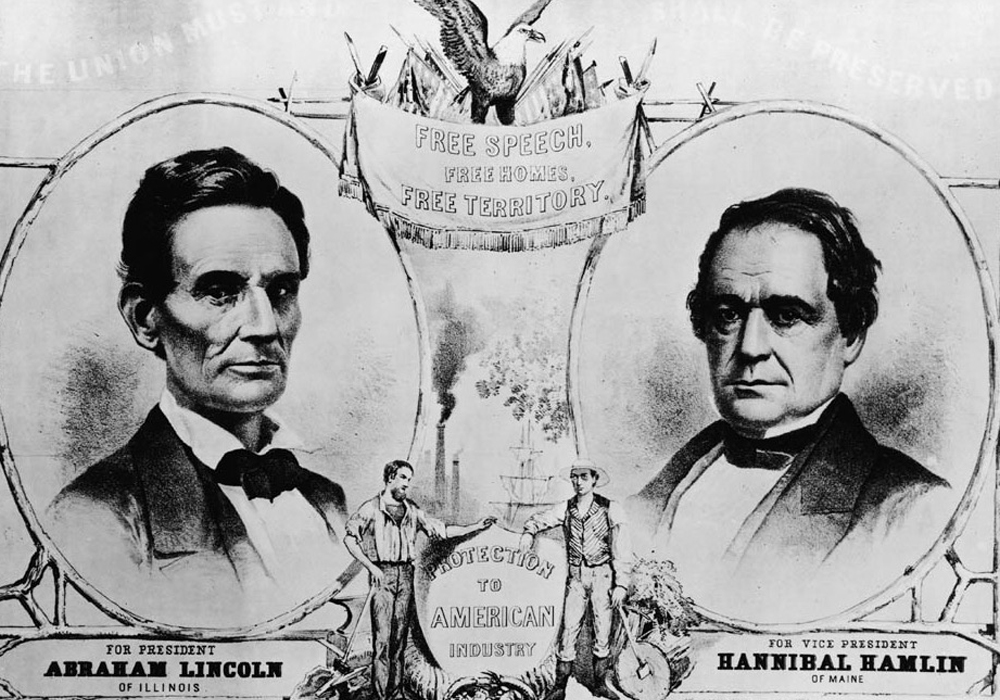
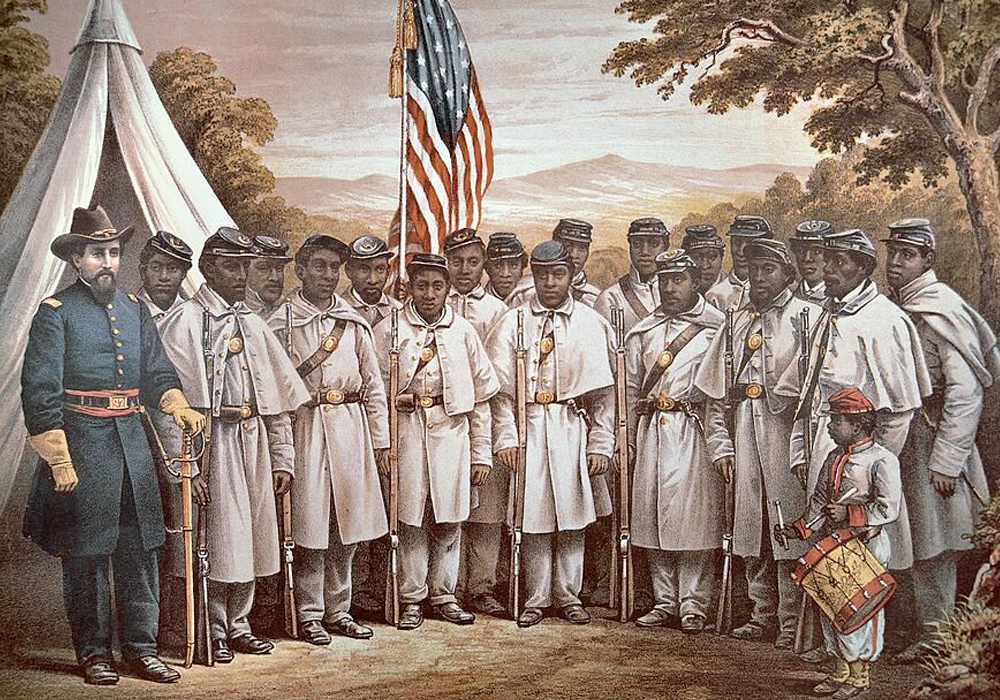
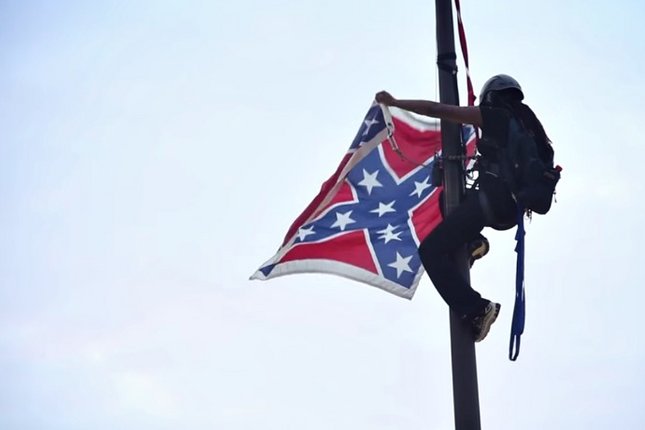
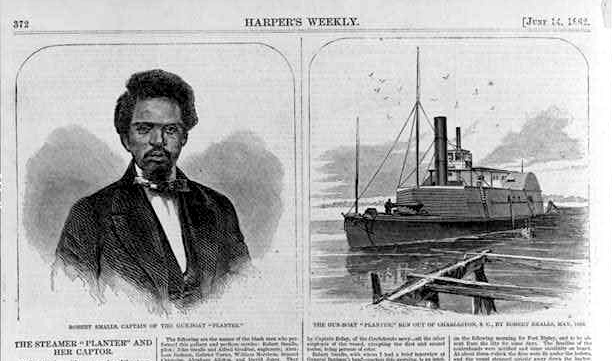
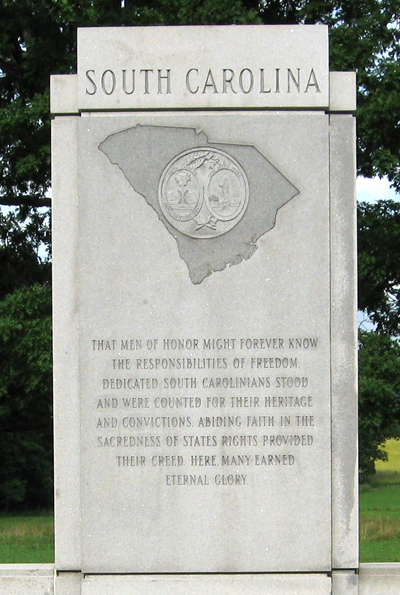





Slavery did not enter the ‘equation’ until the Emancipation Proclamation in 1863 which only freed those slaves in the states of ‘rebellion’ therefore not Northern slaves. Lincoln himself was mainly concerned with preserving the Union whether it meant freeing the slaves or not as noted in this letter to Horace Greeley:
http://www.abrahamlincolnonline.org/lincoln/speeches/greeley.htm
Thank you for exposing the base lies of Confederate propaganda. The only “state’s right” that the South fought to defend was the right to own other human beings. The only heritage that the Confederate States left to the south was a vile and racist institution.